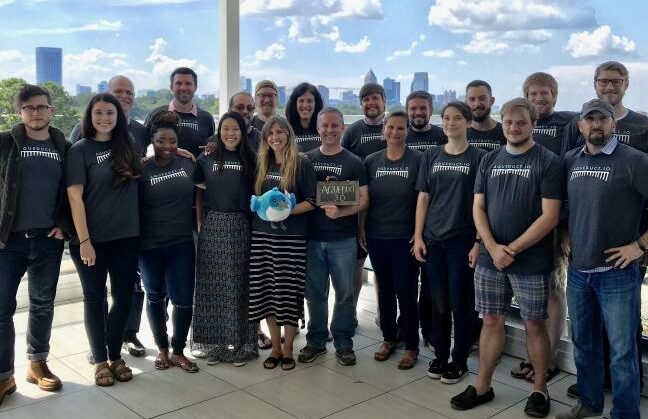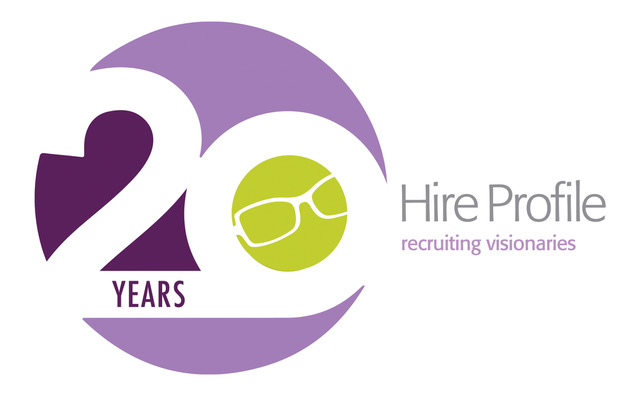Unlike our parents’ generation, today’s path to career “success” is rarely linear. My career has evolved from supporting roles in agencies to leading a company through a global pandemic. Now, I am a co-founder of a company at the forefront of AI. The journey has been a story of adaptability, continuous learning, and embracing the unexpected – something all marketers need to do.
Marketing changes constantly. Be ready for anything.
Print marketing was still a big business when I got into marketing in 2007. We used fax machines to pitch reporters and editors! Twitter was just becoming a thing. We used Technorati to find bloggers for outreach. Fast forward 17 years – we’ve seen the biggest changes to our craft – all due to technology, social media, and cloud computing.
My tech education took off when I joined a startup. We built mobile apps for various Fortune 500 brands and some cool startups. We developed deep expertise in the Internet of Things and Data Science. Working with brilliant developers opened my mind to a whole new world.
One of my favorite projects was working with a car manufacturer to experiment with how artificial intelligence could help them optimize their warehouse operations and product quality reviews using machine learning and computer vision. Then I worked with our Data Science team to build out services that eventually led to partnering with my favorite beer brand. Not quite 10 years later, I’m working in AI every day.
Startup experience shaped the direction of my career and I’m so thankful for the time I spent there. We hustled and built an awesome brand. And true to most of my positions, the people are what made this place so special.

Advice to Others: Be curious. It’s easy to get comfortable with what we know, but that doesn’t bring personal growth. The digital landscape will never stop changing. That means the marketing landscape is always changing. It’s not just about storytelling and beautiful advertising. Marketing has to deliver business objectives and the world is decidedly digital now.
- Stay Updated with Trends: Subscribe to industry newsletters, follow thought leaders on social media, and attend webinars and conferences to stay informed about the latest trends, tools, and strategies.
- Emerging Technologies: AI will change everything about marketing. How we use it is up to us. Understanding how AI can be applied to marketing will set you apart from your peers and offer new ways to engage customers.
- Expand Your Skill Set: Beyond traditional marketing skills, modern marketing requires an understanding of data analytics, UX design, content strategy, and digital storytelling. Marketers with digital product management skills will also have a competitive edge.
- Data-Driven Decision Making: Know how to measure campaign effectiveness and ROI. Get a deep understanding of your customers by quantifying their behavior.
- Experiment and Iterate: Adopt a test-and-learn approach. Use A/B testing and experiments to get better personalization, performance, and efficiency from your marketing spend.
Get Ahead of Innovation
I’ve spent the last five years in innovation and digital transformation, launching new products and ventures for big companies and helping teams develop innovative processes and approaches. My focus was much less on marketing strategy and tactics and more on growth and innovation strategies for clients and agencies.
The biggest lesson I learned from innovation is to test often, fail fast, and don’t try to scale something that hasn’t found product-market fit. Be okay with messiness and uncertainty. Ask lots of questions and look for answers in the data.
In terms of career, innovation means having a growth mindset about how you can solve new problems. Right now, we are in a unique moment in time. We have so many new tools we can use to create better solutions for the problems that need solving.
Once I understood just how powerful generative AI is, I was able to start imagining what’s possible, especially for marketing, sales, and product teams. My goal when GPT4 came out was to learn as much as I could so that I could take this new skill into my next role.
What I didn’t realize is that as an early adopter, I would quickly see how hard it would be for companies to adopt AI at scale in ways that would be good for human outcomes. As a B2B lifer, I want to bring my experience to others and help them be successful at Responsible AI adoption. Also, seriously, the productivity gains are incredible and it would be selfish not to share!
Advice to Others: Develop a growth mindset. Be adaptable to new approaches. Even if your team is not yet scaling AI operations, start thinking beyond how to prompt. Start thinking about how these systems work and how you can use them to reduce common pain points in your work today. What tools could help you eliminate those pain points?
- Vision and Adaptation: Developing a strategic mindset allows you to see the bigger picture, especially when it comes to AI. Prompting is important today, but it won’t always be. Be able to see how AI and other marketing innovations can accelerate your broader business strategy.
- Cross-functional collaboration: Build relationships across functions. Marketing increasingly overlaps with product, IT, sales, and customer service. AI integration, just like any other big transformation or initiative, is going to require a shared company vision.
- Innovative and Agile Thinking: Stay curious and open to exploring new digital tools, platforms, and technologies. Be willing to pivot strategies quickly in response to market changes, new technologies, or shifts in customer behavior.
- Human-Centered Approach: Your brand, products, and services exist to serve your customers. Get obsessed with figuring out what problems they need to solve and how you can do it for them. AI has a lot to offer, but it also creates risks. Balance innovation with maintaining trust with your customers.
Look for the Unexpected Lessons
Early in my career, I found myself in roles that, on the surface, seemed misaligned with my aspirations. You won’t find it on my résumé, but I spent my first seven years out of college, working as a legal assistant in a law firm. I wanted to experience what it was like to work in a law firm before applying to law school. But 9/11 happened early during my time there and I was lucky to have a job. I had already decided after about a year of working there that I no longer wanted to be an attorney. What was next? I could not even fathom what was possible at that time.
But it was here that I was exposed to marketing, sales, enablement, and client event management. And I could see myself getting excited about the work. I also learned a lot about corporate legal transactions and reading legal contracts, which has been very helpful throughout my career. It was also in this job that I had to learn to be a good proofreader.
From there I went to a PR agency as a team administrator. I remember sitting at my desk filling out FedEx packaging slips thinking I had made a terrible mistake and my skills were languishing. Thankfully, I quickly got the opportunity to work on PR accounts. This opened a whole new world of storytelling, creativity, social media, and digital community platforms. I knew I had found something meaningful to me.
Most importantly, I met my lifelong best friends while in this role, and they continue to be my biggest professional supporters to this day. Often, the team you work with can be the most significant factor in job satisfaction. The support, camaraderie, and collective drive towards shared goals can make even the most challenging tasks enjoyable.


Advice to Others: Embrace the lessons every role offers. The skills and insights you gain may pave the way for future success in unexpected ways.
Finding Mentorship Outside Traditional Avenues
I’ve had great bosses. Each one of them has shaped who I am today. One of my favorites was an SVP and working mom. She is also one of the smartest people I know. And she helped me imagine what it could be like to balance a career and motherhood. I saw that it wasn’t easy, but I also saw this brilliant woman in the same conversation help me up my marketing game and at the same time invest time in building a solid family unit where she tirelessly (or maybe even while super tired) advocated and supported her kids and spouse.
Not everyone has a boss that can spend a lot of one-on-one time with them. They are busy making difficult decisions about running a team, a department, or a company and are sometimes a slave to a busy calendar.
If this is your experience, find someone outside of your team or even your company that has time or interest in investing in you. For me, I began to thrive in that agency role after a leader outside of my department took an interest in me. Working with her showed people in the company what I was capable of and I was exposed to more opportunities internally, eventually moving into a full-time business development role.
Advice to Others: Seek mentorship widely. The insights from those outside your immediate circle can open new doors and inspire innovation. Be open to what “mentorship” means. It doesn’t have to be formal. You may already have a mentor and not realize it.
Experiences vs. Titles
I was 29 when I left the law firm. Yes, I stayed too long. And that meant I was starting a new career in my late 20s while surrounded by team members much younger than me, with titles higher than me. Ouch. Was my ego bruised? Definitely.
But the learning opportunities kept coming. I worked on a variety of projects and clients while developing PR, marketing, and business development skills. I got to lead a product naming project. I conceptualized a social media platform for an environmental agency, worked on the roadmap, and then helped launch the product. Me and my work bestie (also life bestie) ran the first blogger relations program for our agency globally.
That was cool!
Those experiences led me to my next adventure where I did get the title I wanted and the autonomy to build a team and a brand.
Advice to Others: Reflect on what motivates you. Sometimes, job satisfaction comes from the work itself, the team, and the learning opportunities, rather than titles or financial rewards.
The Double-Edged Sword of Promotions
Promotions are often seen as the BIG SIGN of career success. They come with their own set of challenges. The increased responsibility and pressure aren’t always worth the trade-off. Understand what you’re signing up for and whether it aligns with your personal and professional goals.
A wise boss once said, “I can do anything for an hour,” and I’ve held onto that my whole career. No matter the task or the challenge, I’m typically up for it! My biggest skill has become “figure-out-ability” and recognizing this, I’ve sometimes stepped into new roles where “figure-out-ability” is the most critical component.
Doing something you don’t love for one hour is one thing, but what about when that new job, project, or task lasts a year or 18 months? The role will be challenging, but you have to ask yourself if those are the challenges you want. Will that promotion lead to having conversations you don’t want to have or making decisions that you don’t want to make? Will it suck the joy out of the work? THAT is an important question to ask.
The global pandemic prompted many of us to reassess our careers and what we want out of life. For me, this period underscored the importance of adaptability and the need to pivot towards meaningful, fulfilling work. The disruption also highlighted the role of AI as a catalyst for change, offering a unique opportunity for reinvention and strategic evolution.
Advice to Others: Carefully consider the implications of a promotion. Ensure it’s a step towards your long-term goals, not just a short-term gain. Use periods of change as opportunities to reflect on your career path and pivot towards what truly fulfills you. Embrace the tools and technologies that can aid in this transition.
There’s no better time to think about what’s next than right now.
I’ve spent the last year as a co-founder of an AI consulting company, helping leaders navigate these new AI waters. From startup advisor to startup founder, it’s been a wild ride. Change is a gateway to new opportunities. Embrace it with an open mind and a willingness to adapt, and you’ll find that every pivot, every seemingly wrong turn, can lead to profound growth and unexpected success.
About the Author

Sarah Woodward: Expert in Growth Strategy and AI Transformation
Renowned for her prowess in growth strategy, Sarah excels in launching startups and driving enterprise innovation. Specializing in generative AI, she guides executives through transformation with scalable solutions. With diverse experience in consulting and digital agencies, Sarah crafts innovative business models and go-to-market strategies for global enterprises like BMW GROUP and Nationwide Insurance. Recognized as a “Mobile Woman to Watch” and one of the “5 Inspiring Women In Tech To Watch In Atlanta,” she shapes the tech and business landscapes with her pragmatic leadership approach

